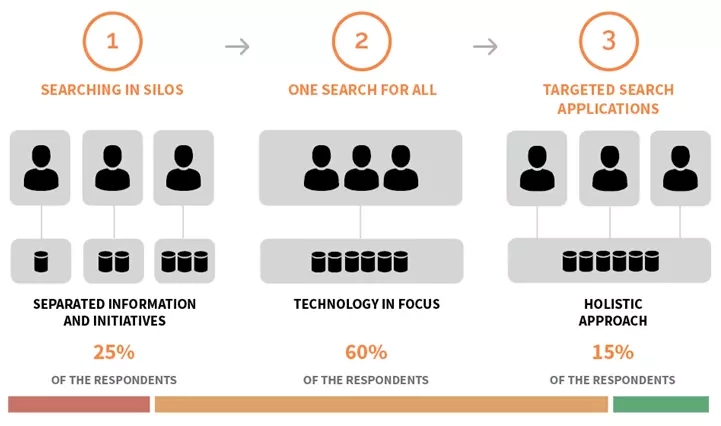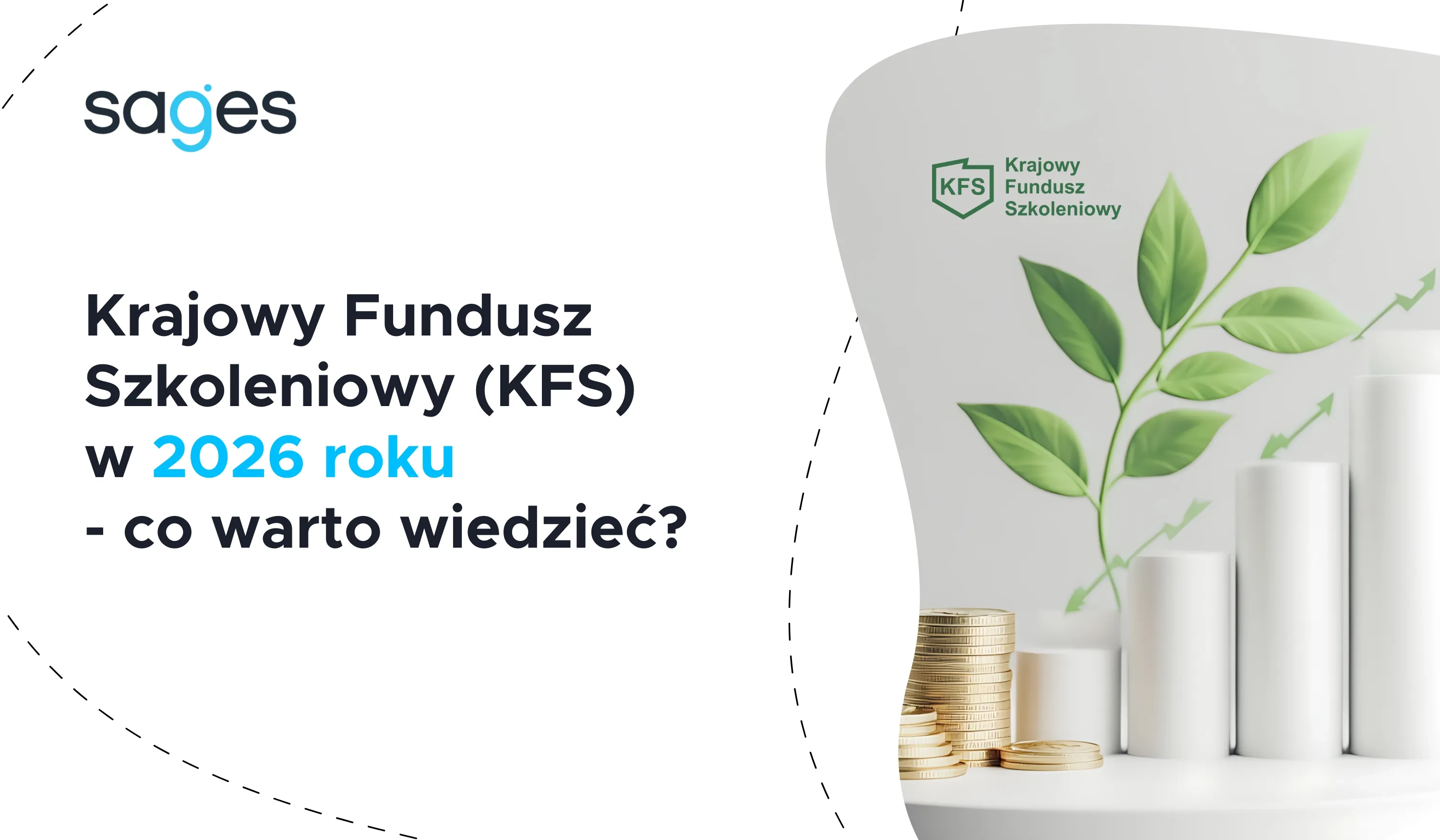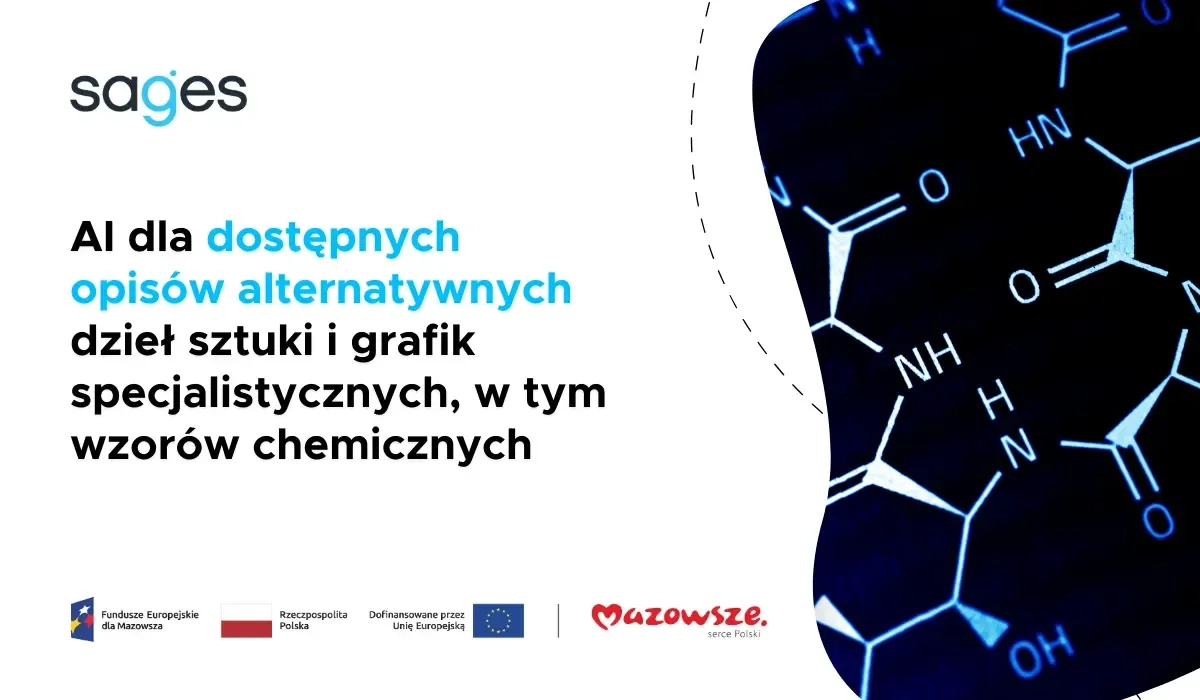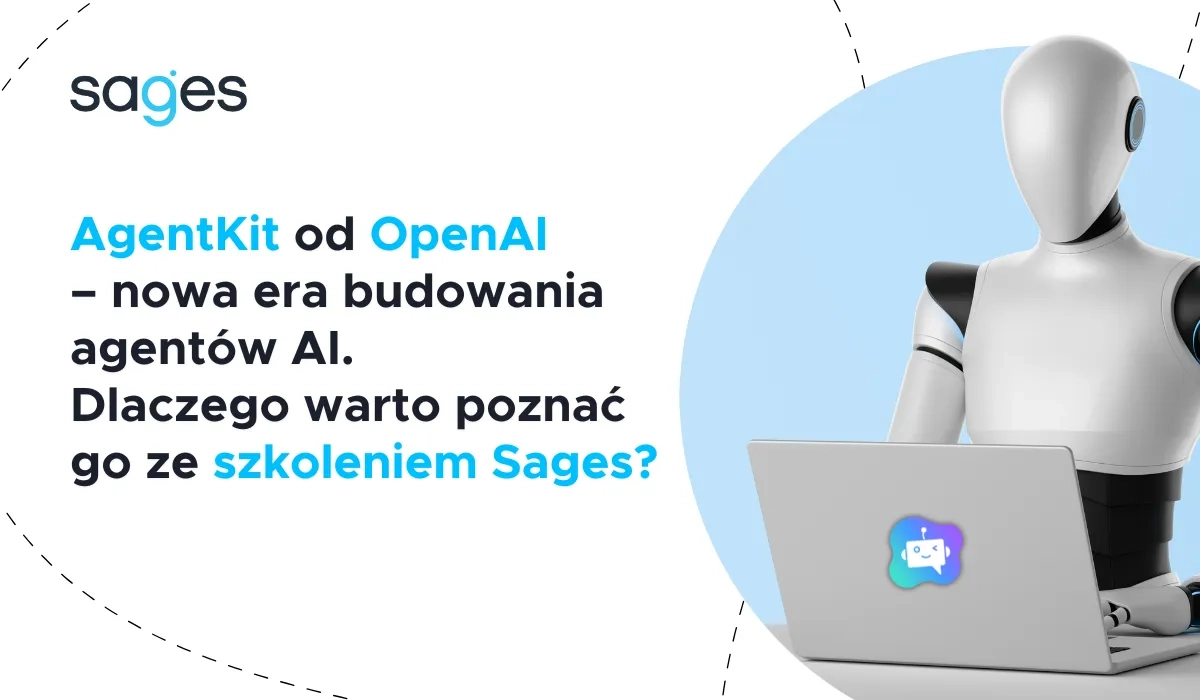Earlier this year, Salesforce, a popular SaaS CRM solution provider, released a report titled "State of IT."State of IT 2016." More than 2,000 IT leaders, including those serving as CIOs, participated in the survey. The main objective of the report was to analyze the progress of digital transformation and the areas where investing in innovative ventures is expected to lead to competitive advantages. It turns out that IT departments, and by extension their heads, are focused around building solutions that increase the productivity of employees in all departments (55%) and ensuring accessibility to and transparency of data collected by the company (47%). In addition, 62% of companies are increasing investment in this area. A clear trend can be observed in that business users are increasingly able to solve their daily problems with specialized software (77%).
The respondents' answers and the statistics collected fit quite well with Findwise's research entitled "Findability Report."Findability Report." This report focuses on the maturity of search systems and the ease of finding information in enterprises. Among the many implementations, products and applications, it is search engines that ideally fulfill the above requirements: increased employee efficiency, access to data, or self-service (self-service) in the area of discovering corporate knowledge. Findwise's annual survey shows that for 60% of the surveyed companies, the ability to find the right information is extremely important, and 42% of them intend to increase their existing spending in this area. What's more, there is a growing number of organizations (40% in 2015, compared to 20% in 2012) that have created their own strategies for developing search platforms.

To adequately justify investments in IT tools supporting knowledge management and rapid access to information, it is necessary to analyze the problems that can be overcome by using solutions from the enterprise search category.
In many companies it can be observed that employees waste their own and others' time searching for information. Assuming that a person searches for information for himself, his team, or his superiors for an average of 60 minutes a day, that adds up to about 3,000 hours a month with 150 people. Simply reducing the time spent on getting to the right documents by 50% can result in huge savings on the organization's annual finances, and this is not the only benefit. Naturally, estimating the time wasted by obstructed access to documents is a challenge in itself, but doable, as the project at PGNiG Termika proves.
Today, in the information age, everyone is talking about making the right decisions based on reliable information - complete, reliable and up-to-date. The rate of data growth is tremendous and constantly increasing. However, there is a certain critical mass that, if exceeded, makes data collection meaningless due to the lack of recourse. Why create and store gigabytes of data if you can't use it? We estimate that such a problem can occur after just a few years of operation for a small company (100+ employees). Therefore, another factor is access to critical information at the right time. It is good for this decision to be made based on the company's experience in solving similar problems. In order for people to benefit from the knowledge developed in the organization, the data must be organized, effectively classified and shared. In smaller organizations, the decision-making process can happen naturally, such as through conversations with experienced employees. However, in large organizations, it is sometimes difficult to break through complex structures, to reach the right people, and the knowledge sharing process itself can be more complicated. Quickly finding established information can result in employees not making the same mistakes, and the organization will systematically build and develop its own know-how. A good illustration of this aspect is the successful project carried out for the Forsmark nuclear power plant in eastern Sweden.
Another major problem is the duplication of work. Employees, often not knowing that their colleagues on another project have solved similar problems, start working with a given issue completely from scratch. Once again, the result is wasted time, the risk of errors and limitations in the development of the company's competence, as the lion's share of the effort is put into opening the same, long-opened doors.
The use of search technology offers a chance to introduce information governance in the company, to make key documents available quickly and accurately, and to introduce the habit of information self-service, along the lines of how we deal with finding necessary content on the Internet.
Most often, the root of search problems is not the technology itself, but the quality of the documents being processed, or simply the lack thereof. Information architecture is an area that needs special attention if the efficiency of our search platform is critical. According to Findability Report, almost half of the respondents declare that in their companies there are people (or such a position is already being created), responsible for the life cycle, structure and thus quality of information. Separate topics are the troubles with the accuracy of search results and monitoring user behavior. The first of these is a complex, multidimensional issue on which even books are being written. It is important to remember that working with ranking is not limited to writing a query to the search engine. In turn, without monitoring the search engine's statistics (most popular queries, clicks, page and position numbers, queries with missing results, use of navigation), it is difficult to determine whether it is working properly and meeting its business objectives. Pawel Wroblewski' s blog entry on Search in Polish el aborates on this topic.
After years of experience, Findwise consultants have developed their own approach to implementing search projects, which is called Findability and consists of 5 areas. Their analysis is key to the success of the project:
- Business --- determining project performance indicators (KPIs) is key. Companies that are able to look at the search issue in a long-term perspective and broader context gain the most. They are also better able to select resources and plan investments to meet ambitious goals within a set time frame.
- Information --- the search engine doesn't modify content, it just makes it available to end users. The data itself is crucial, and this is both technical (databases, document repositories, data indexing, volume, growth rate, etc.) and informational (document classification, content structure, metadata model, tagging consistency, taxonomy).
- Users --- usability of web and mobile applications is critical to their popularity and user feedback and satisfaction. Transparency, ease of use while ensuring adequate precision, performance and optimization for business requirements are challenges that need to be properly addressed.
- Organization --- no ambitious IT project has a chance of success without good organization. Careful planning of the required resources, means of implementation, and definition of responsibilities, such as search engine maintenance, is essential.
- Technology --- the choice of technology and search engine is the base on which a dedicated solution is built. And while technology does not determine the success of the entire enterprise, proficiency in operating it is essential to fully realize the set business goals.

Guest post by our training partner --- Findwise.
Findwise is a consulting company specializing in information retrieval systems (including enterprise search, e-commerce search) and closely related disciplines: natural language processing or information architecture. Projects are carried out for companies ranging from medium-sized to large global corporations in a wide variety of business areas. In 10 years of activity, Findwise consultants have completed more than 1,000 projects for more than 300 entities.




